A reptile’s diet is very important for its overall health and well-being. One of the most important items in a reptile’s diet is calcium. Calcium is necessary for healthy bones, teeth, muscles, and nerve function. In this article, we will discuss the difference between calcium with D3 and calcium without D3.
Why do you need Reptile calcium for your pet reptiles?
Calcium is essential for many biological processes in reptiles, including muscle contraction and nerve signaling. Reptiles require a sufficient amount of calcium to ensure their bones grow properly and prevent metabolic bone disease, egg production in females, and other physiological processes. Without enough calcium, certain diseases can occur that can be life-threatening or even fatal. [1]
What is the role of D3 in Reptile calcium?
D3 is a form of Vitamin D that helps your reptile absorb calcium. Reptiles exposed to sunlight or UVB lighting can produce their own Vitamin D3 but if they don’t get enough, then supplementing with reptile calcium with added D3 can help ensure they are getting the right amount of vitamin D and calcium in their diet.
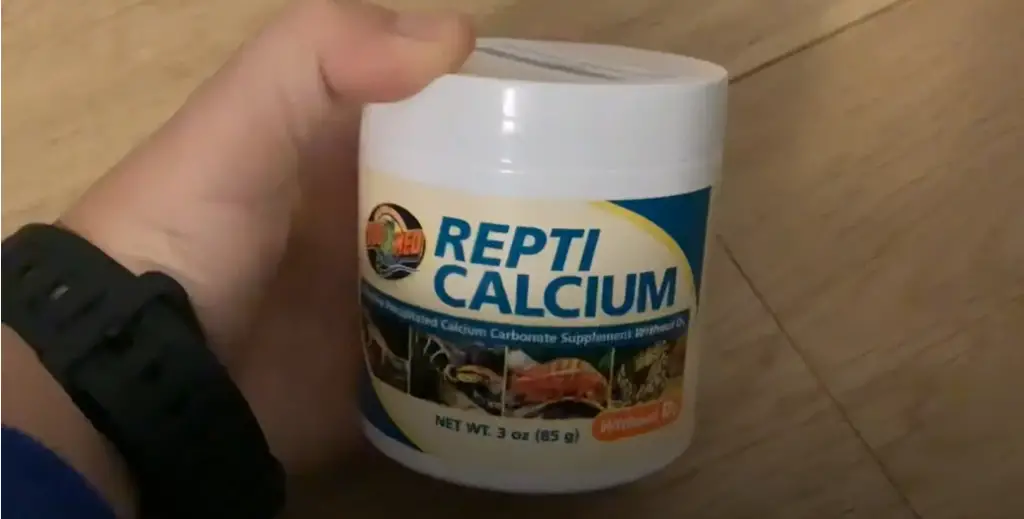
The Difference Between Reptile Calcium with D3 and Reptile Calcium without D3
Reptile calcium with D3 is typically supplemented in a reptile’s diet to provide extra Vitamin D3 and help the reptile absorb more calcium. Reptiles can obtain some Vitamin D3 through basking and ultraviolet lighting, but if this isn’t enough, then supplementing reptile calcium with D3 can help ensure the reptile is getting an adequate amount of both vitamin D and calcium in their diet. On the other hand, reptiles that are exposed to plenty of sunlight or UVB lighting should not need additional supplementation with reptile calcium containing D3. [2]
Calcium absorption
Calcium absorption occurs when calcium is transported from the gut to the bloodstream, where it is then utilized for various bodily functions. The presence of Vitamin D3 helps facilitate this process by binding to calcium and allowing it to be absorbed more easily in the body. Without enough Vitamin D3, a reptile may not be able to absorb enough calcium from its diet, leading to deficiencies that can cause serious health issues.
Nervous system functionality
Calcium plays an important role in nervous system functionality. It is required for proper nerve conduction and transmission, as well as muscle contraction. Without enough calcium, the nerves cannot carry out their duties properly, leading to issues such as weakness, paralysis, or even death. By supplementing Reptile Calcium with D3, your reptile can ensure that they are getting enough of this essential nutrient to maintain its nervous system’s function.
Egg formation
For many species of reptiles, calcium is essential for egg formation. Calcium helps to support the development and hardening of an eggshell, which can prevent the eggs from breaking before their hatchlings emerge. For a female reptile to produce eggs properly, she must have enough calcium in her diet or added supplementation. This is why any reptile keeper needs to understand the difference between reptile calcium with D3 and without when providing nutrition for their pet.
Hormonal balance
Calcium is one of the main minerals that plays a vital role in reptiles’ well-being. It helps to keep the muscles and bones strong and healthy, regulate hormones, and aids in digestion. Moreover, calcium is essential for proper nerve conduction and blood clotting. Without it, reptiles can suffer from hypocalcemia—a condition caused by low levels of calcium which can lead to seizures, weakened muscles, lethargy, depression, twitching and even death if left untreated.
Reptiles need two forms of calcium: dietary calcium (obtained through their food) and supplemental (or extra) calcium obtained through supplements or other sources. Dietary calcium is found naturally in many foods such as dark leafy greens like kale or turnip greens, squash and sweet potatoes. You can also supplement with calcium by providing a reptile-safe calcium powder or crushed up calcium pills which you can place in the food or add to water (always make sure it’s dissolved before giving it to your reptile).

Metabolism efficiency
Reptiles require calcium for healthy bones and muscles, but when it comes to choosing between reptile calcium with D3 or without, the differences in metabolism efficiency should be considered. Reptiles obtain vitamin D3 from either UVB light or their diet, which is then converted to the active form of vitamin D3 (calcitriol) by the body’s enzyme processes. Calcitriol helps regulate calcium and phosphorus levels in the blood, ensuring that these essential minerals are absorbed into the bones where they provide strength and support.
Reptile calcium with added vitamin D3 has already been pre-converted by manufacturers into calcitriol. This means that reptiles don’t have to rely solely on UVB lighting or dietary sources of vitamin D3 to convert it into an active form. This allows reptiles to absorb and utilize calcium more effectively, leading to improved growth, health, and well-being.
Bone diseases
Reptiles are particularly susceptible to bone diseases, such as metabolic bone disease (MBD). MBD is caused by a deficiency in calcium, phosphorus, and vitamin D3. Symptoms of MBD include soft bones, fractured bones, swollen joints and lameness. If left untreated for too long, these conditions can lead to severe disability or even death. [3]
By supplementing reptile calcium with D3 regularly, you can help ensure that your reptile has enough of this essential mineral and vitamin to prevent the onset of any type of bone disease. This will also improve the overall health and well-being of your pet.
How do reptiles fulfill their D3 needs?
Most reptiles rely on their diet to fulfill their vitamin D3 needs. Foods such as kale, spinach, and fish are good sources of dietary vitamin D3. Reptiles can also obtain the necessary amount of vitamin D3 from UVB lighting, which helps to convert a form of cholesterol in their skin into an active form of the vitamin.
Reptile calcium with added D3 is beneficial for those who want to supplement their reptile’s diet without relying solely on natural sources of the nutrient. By providing a combination of reptile calcium with added D3, you can ensure that your reptile has enough of this essential mineral and vitamin to maintain its health and well-being.
Should you get Reptile calcium with D3 or Reptile calcium without D3?
The decision on whether to use reptile calcium with D3 or without depends largely on your reptile’s diet and UVB lighting. If you provide a balanced diet full of natural sources of vitamin D3, then it may not be necessary to supplement with added vitamin D3 in the form of reptile calcium. However, if you are not able to provide natural sources of this essential nutrient or your pet is living under artificial lighting, then it may be beneficial to supplement with reptile calcium that includes added D3 for better absorption and utilization by the body.
No matter what type of reptile calcium you choose, it’s important to ensure that your pet has access to enough dietary and supplemental sources of this essential nutrient. By doing so, you can help ensure that your reptile remains healthy and happy for years to come!
FAQ
Do reptiles need calcium with D3?
Yes, reptiles need calcium for healthy bones and muscles. Vitamin D3 helps them to absorb and utilize the calcium more effectively, leading to improved growth, health, and well-being. Supplementing with reptile calcium with added D3 may be beneficial if your pet is not able to obtain natural sources of this essential nutrient or they are living under artificial lighting.
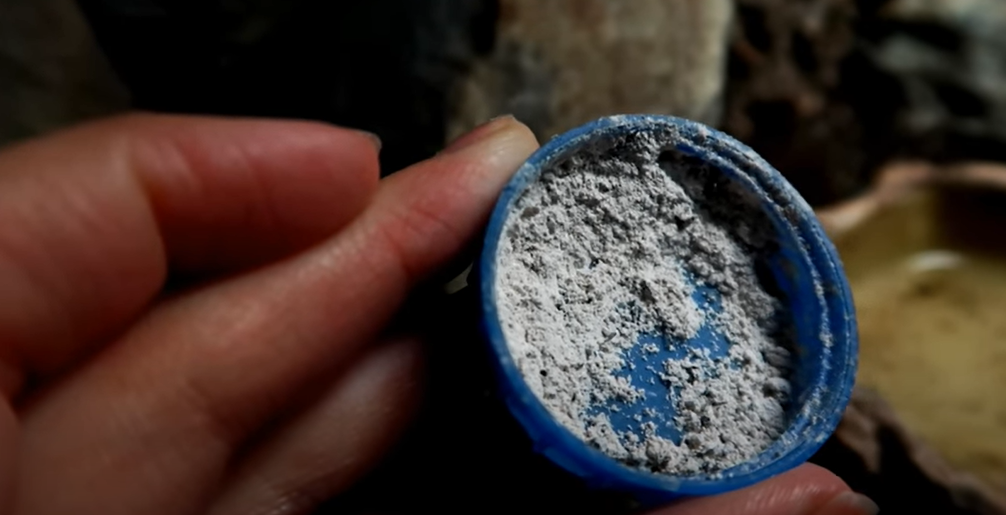
Is calcium without D3 good for bearded dragons?
Yes, calcium without D3 may be beneficial for bearded dragons if they can obtain natural sources of the vitamin from their diet and UVB lighting. However, supplementing with reptile calcium that includes added D3 can help ensure that your pet has enough of this essential nutrient for better absorption and utilization by the body.
Can you overdose a lizard with calcium?
Yes, it is possible to overdose a lizard on calcium if they are receiving too much of the nutrient through their diet or supplements. It’s important to provide the right amount of calcium for your pet to ensure proper growth and health. If you have any concerns about providing the correct amount of calcium for your pet, consult with a veterinarian.
Do leopard geckos need calcium with or without D3?
The answer to this question depends on a variety of factors, including the diet, age and health of your reptile pet. In general, most leopard geckos require calcium with added Vitamin D3 to build strong bones and grow healthy muscles. Without adequate calcium, leopard geckos can develop metabolic bone disease – a condition that can be debilitating or even fatal if left untreated.
Calcium is an essential mineral for all reptiles as it helps support skeletal and neurological development. The body needs vitamin D3 in order to absorb and utilize the calcium effectively. Therefore, when feeding your reptile a balanced diet high in protein and fat but low in calcium, it is important to supplement their diet with a separate source of calcium with added Vitamin D3 to ensure adequate intake.
Useful Video: Are You Doing It Wrong? Bearded Dragon Calcium With Or Without D3
Conclusion
Reptiles need calcium to grow and stay healthy, but not all calcium supplements are created equal. Those that include vitamin D3 are more easily absorbed by the reptile’s body and will be more effective in preventing health problems later on. When choosing a calcium supplement for your reptile, make sure to select one with vitamin D3 to ensure they’re getting the nutrients they need.
References:
- https://obiesworms.com/blogs/news/why-is-calcium-important-for-your-reptile
- https://ourreptileforum.com/community/threads/the-difference-between-reptile-calcium-with-d3-and-reptile-calcium-without-d3.25332/
- https://wcvmtoday.usask.ca/articles/2019/09/Understanding-metabolic-bone-disease-in-reptiles.php

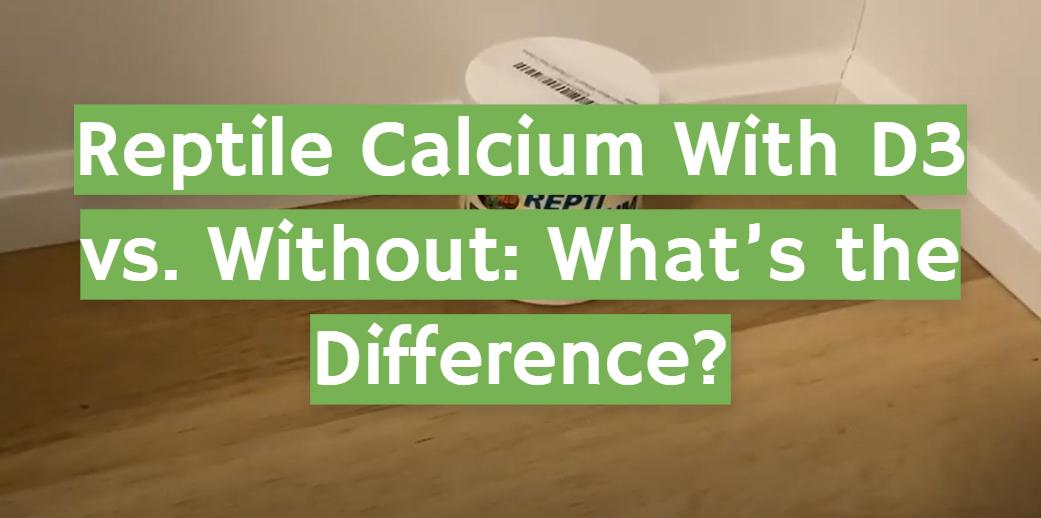
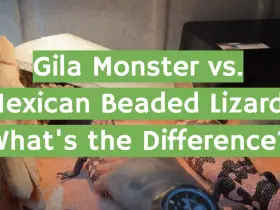

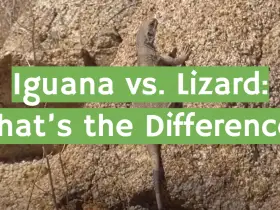

Leave a Review